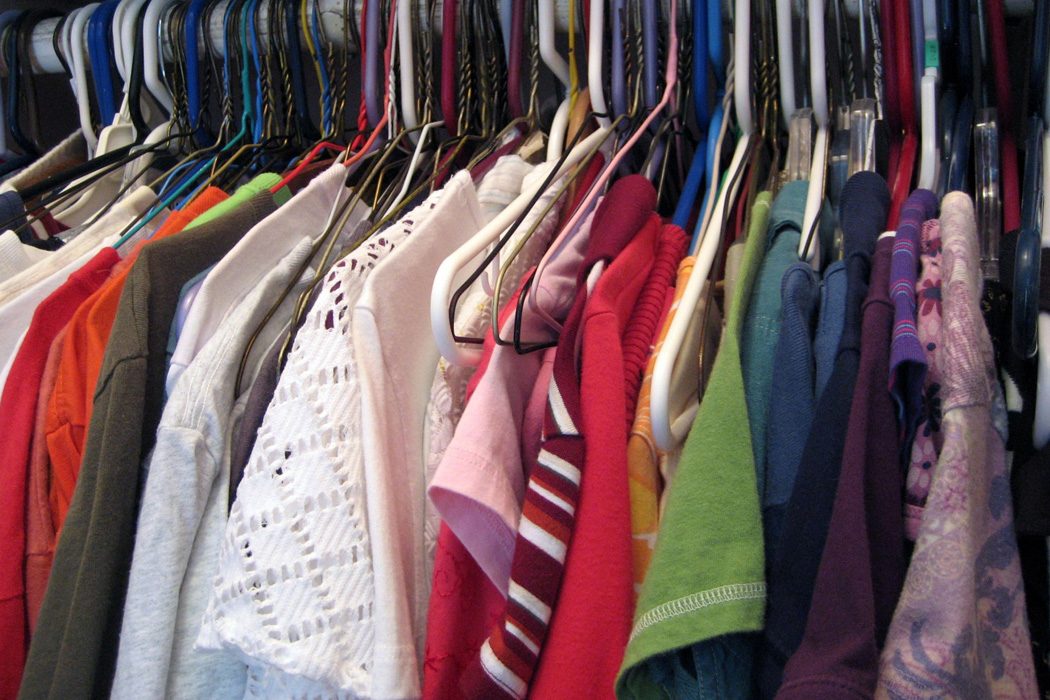Last October a weekend away unraveled into seven days of limbo. I was thankful that the vintage black dress with gold buttons, which I wore to a friend’s wedding, could double as funeral attire. As the days stretched into the turn of fall, I was bereft of a sweater. I was bereft of an aunt. Ill prepared, I quickly donned her clothes in between the black dress events. Her husband, a man too recent in her life for me to call uncle, needed them gone—the three rubber bins of shoes, the hanger after hanger from decades of life—all gone to the relatives or to the homeless. My grandmother cried and called it crass. “Too soon! Before she is even cold.”
But it was just in time. I needed the clothes. A chambray shirt for the cool nights walking her city waiting for the something to happen; professional clothes from her years as an executive for my newly acquired real job; the vintage dresses to assert our commonality. Polite society used to wear black transitioning to purples and grays as time and grief dictated. I just wore her clothes, in every color, almost every day for months after the funeral. They smelled awfully of incense, even after several washings.
My grandmother, who everyone called Lilly, died not half a year later. With wet eyes but stoic words my grandfather told us to, “take care of her closet.” No one tells you how hard it is to get a funeral together. Even the simplest of cremations require quick planning and clear directions. If the death was long and the false hope even longer, clarity abandons you. So you are stuck, waiting while the details get corrected. You wait for meals. You wait for an emotion other than blank ache. You wait for the family to come together or fall apart. When my grandfather gave his command it was a relief.
Lilly’s closet was leaner, but no less prized; Italian shoes in original boxes, clothes in black or white or taupe or blue, treasured leathered bags and her signature silver bangles. My grandmother clinked wherever she went. Three slim bracelets hulaed along her turtleneck sleeve as she moved. The bracelets were gifts from my grandfather, worn so often that the engraving was abraded to the basest of outlines. The bangles were divided five ways between the remaining women of our family. Mine was the last addition to the collection; on it small silver animals parade two by two. The Noahic covenant effigy remained in full relief, after years of ownership.
The clothes from my matriarchal line enjoyed a full of life. An ash shirt hiked the Olympic Mountains. That dress negotiated business awards. The black sweater zigzagged across Europe in a tiny Fiat. They are scaffolding on which I project my grief and confusion about the loss of family I am not sure was mine to lose. My aunt and my grandmother’s clothes invest me with boldness. I take them new places. Recently my bangles echoed over the church sound system as I poured the baptismal water of assurance. Higher pitched than the splash assuring our pardon, a bracelet relegated the closet for its religious allusion is ransomed.





